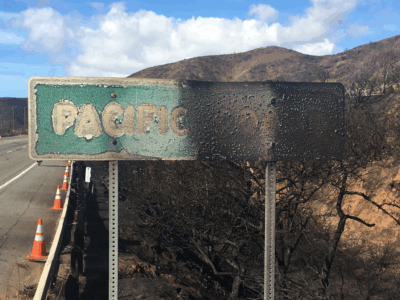Climate Change and Political Action
Do the Fires in Australia Change Anything?
“I want people to unite behind the science . . . I’m not the one who’s saying these things. I’m not the one who we should be listening to. And I say that all the time. I say we need to listen to the scientists.”
–Greta Thunberg, September 11, 2019
“Look, scientists also have a political agenda.”
–Donald Trump, October 11, 2018, interview on 60 Minutes
“We should be focused on clean and beautiful air-not expensive and business closing GLOBAL WARMING-a total hoax!”
–Donald Trump, tweet, December 28, 2013
“To suggest that with just 1.3% of global emissions that Australia doing something differently, more or less, would have changed the fire outcome this season, I don’t think that stands up to any credible scientific evidence at all.”
—Scott Morrison, Australian Prime Minister, January 2020
In the face of overwhelming scientific evidence, as Greta Thunberg identifies, and now in the face of massive fires, hurricanes, drought, flooding, warming, why are so many political leaders –Brazil, Australia, and the US, for example — able to do little or nothing without political consequence, and why does the public accept inaction?
Jared Diamond, in his 2005 book Collapse: How Societies Choose to Fail or Succeed, sets out a number of factors for why “societies end up destroying themselves through disastrous decisions,” including (with apologies to Professor Diamond for truncating a more nuanced discussion):
-
- Failure to anticipate a problem because society had no prior experience with such a problem (can result, inter alia, in reasoning by false analogy)
- Failing to perceive a problem that has actually arrived (slow trends concealed by fluctuations)
- Failure to solve problem once it has been perceived (embedded interests in status quo, greed, tragedy of the commons, isolated elites)
- Irrational beliefs (religion, cults, nationalism)
- Short-term benefit wins over sustainability
- Denial
- Problem is beyond ability to solve
With climate change, we face some form of each of these factors, except for the last one (beyond ability to solve). How do we break through these factors? How do we move to emergency response and galvanize political support? Why isn’t climate denial or inaction sufficient to foreclose political office? These issues seem like the great challenges of climate change, even beyond those of technology and finance.
If we can’t push beyond our inertia, we will be in the same situation as the inhabitants of Easter Island, about whom Professor Diamond’s students asked, “how on earth could a society make such an obviously disastrous decision as to cut down all the trees upon which it depended?”
The horrific fire season in Australia brings this into even sharper focus. How do we translate that focus to action in the United States and beyond? No single answer seems apparent, but the need seems more urgent than ever. Dan Farber makes the argument in his blog earlier today (Can the Center Hold?), that if our institutions do not respond in a more coherent and significant way, the institutions themselves may be pushed aside.







Reader Comments